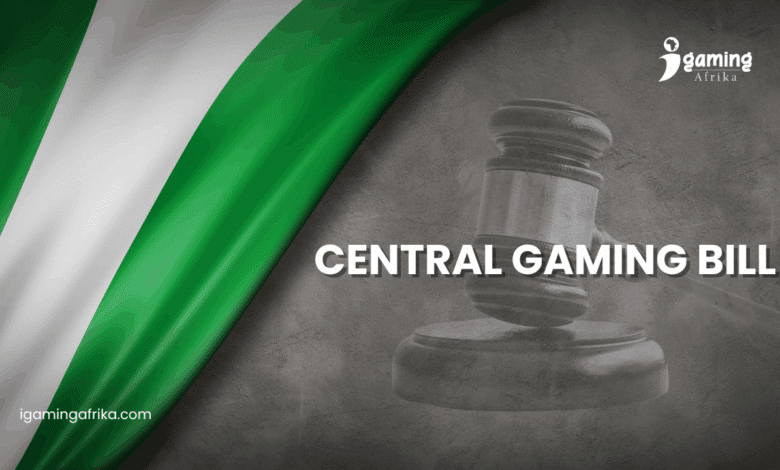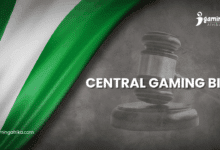Nigeria Central Gaming Bill Faces Backlash from CGG Over Unconstitutional Overreach

The Coalition for Good Governance (CGG) has strongly criticized the Nigerian Senate for attempting to pass a central law regulating lotteries and gambling nationwide, calling the move illegal, unconstitutional, and a threat to national security.
Speaking at a recent press briefing in Lagos, CGG spokesperson Nelson Ekujumi described the proposed bill as a “voyage of legislative rascality and lawlessness.” He emphasized that the Supreme Court of Nigeria had already ruled unanimously that the National Assembly does not have the authority to legislate on lotteries or gaming matters for all states, except for the Federal Capital Territory (FCT).
“The Supreme Court, being the apex court of the country, has the exclusive final authority to interpret the Constitution. Once the Supreme Court has made a decision on a subject, it becomes final and binding on all persons and authorities, including the Executive and the Legislature,” Nelson emphasized.
According to him, the National Assembly’s move to pass the Central Gaming Bill is unconstitutional and amounts to “an assault on legislative integrity, national security, and democracy itself.” “We are at a loss to rationalize the reason for the National Assembly, made up of the Senate and House of Representatives, attempting to illegally and unconstitutionally rewrite the law, other than to undermine democracy, national security, and the Constitution by this voyage of lawlessness, which stands condemned in all its ramifications,” Ekujumi noted.
Ekujumi further called on the House of Representatives to apologize to Nigerians for passing the bill, asserting that it undermines legislative integrity and the rule of law. He stressed that the Supreme Court’s decisions are final and binding under the Constitution, and therefore the Senate should refuse to concur with the central gaming bill.
The CGG highlighted that the Supreme Court, as Nigeria’s apex court, holds exclusive authority under Sections 6, 6B, 235, and 287 of the Constitution to interpret the Constitution and laws affecting rights and obligations of persons and authorities. Once a ruling has been delivered, it becomes binding on all arms of government, including the legislature and executive.
Ekujumi noted that since the Constitution has not been amended to place lotteries, gambling, or gaming on the exclusive legislative list, any federal attempt to regulate these activities beyond the FCT directly conflicts with the Supreme Court’s binding judgment.
Read Also: Central Gaming Bill Sparks Fresh Legal Debate Between Lagos and National Assembly
The Coalition for Good Governance (CGG) has called for an immediate halt to the Senate’s consideration of the central gaming bill, labeling it an illegal and unconstitutional act. The coalition warned that the law contravenes a recent Supreme Court ruling and noted that many state governments may not yet fully realize the illegality of the Senate’s action.
Ekujumi emphasized that civil society and the public have a duty to monitor both the legislature and the executive to ensure the law is not unlawfully expanded beyond constitutional limits. “The legislature is overstepping its authority,” he said, stressing that any responsible civil society organization must call out such violations to protect the Constitution and democratic governance.
The coalition also indicated that their campaign would extend beyond the Senate. If the bill passes the upper chamber, it will proceed to the President for assent, and CGG intends to make the executive aware of the unconstitutional nature of the legislation to prevent its approval. Ekujumi stressed that this is part of a broader effort to ensure all arms of government uphold the Constitution and national security, preventing any recurrence of legislative overreach.
This comes after the Federation of States Gaming Regulators of Nigeria (FSGRN), on July 21st, raised strong objections to the Central Gaming Bill (CGB), warning that it infringes on the constitutional powers of state governments. FSGRN stressed that lotteries and gaming fall under residual state jurisdiction, and any federal attempt to assume control would undermine the federal structure, disrupt state-level regulatory frameworks, and weaken the rule of law.
Following this, several state regulatory bodies, including the Enugu State Gaming Commission, endorsed the FSGRN’s stance, rejecting the CGB and reaffirming that regulation of lotteries and gaming is a matter for state legislatures. The growing resistance has also spurred legal scrutiny, with some states signaling readiness to challenge the bill in court, highlighting that the legislation could violate both the Constitution and the Supreme Court’s earlier ruling on state authority over gaming.






















